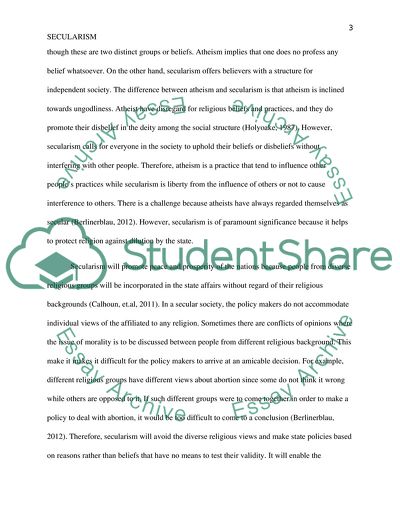Cite this document
(Origin and Nature of Secularism Literature review Example | Topics and Well Written Essays - 2000 words, n.d.)
Origin and Nature of Secularism Literature review Example | Topics and Well Written Essays - 2000 words. https://studentshare.org/religion-and-theology/1810358-secularism
Origin and Nature of Secularism Literature review Example | Topics and Well Written Essays - 2000 words. https://studentshare.org/religion-and-theology/1810358-secularism
(Origin and Nature of Secularism Literature Review Example | Topics and Well Written Essays - 2000 Words)
Origin and Nature of Secularism Literature Review Example | Topics and Well Written Essays - 2000 Words. https://studentshare.org/religion-and-theology/1810358-secularism.
Origin and Nature of Secularism Literature Review Example | Topics and Well Written Essays - 2000 Words. https://studentshare.org/religion-and-theology/1810358-secularism.
“Origin and Nature of Secularism Literature Review Example | Topics and Well Written Essays - 2000 Words”. https://studentshare.org/religion-and-theology/1810358-secularism.


